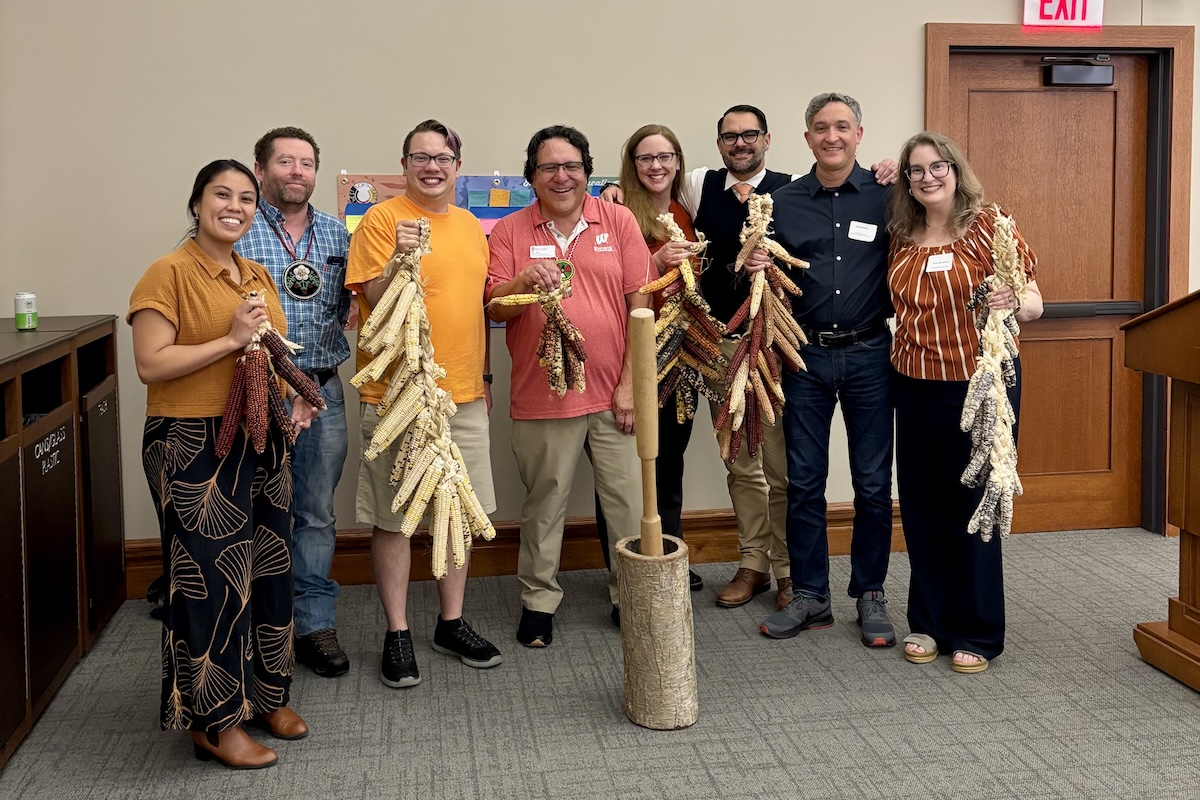The UW–Madison School of Education has launched a two-year initiative this fall to strengthen Indigenous education across its programs, with a particular emphasis on teacher preparation.
The Advancing Indigenous Education Strategic Initiative is designed to help the School meet the requirements of Wisconsin Act 31, while deepening engagement with the First Nations of Wisconsin and expanding understanding of Indigenous knowledge, experiences, and pedagogies.
The effort is led by the Advancing Indigenous Education Committee, whose members come from across the School of Education and campus. They say the initiative will focus on four key goals: strengthening relationships among students, staff, and faculty; building intentional connections with Wisconsin’s tribal nations; expanding understanding of Indigenous experiences and pedagogies; and developing concrete recommendations to help support and sustain Indigenous education across the School.

A two-year learning journey
During its first year, the Advancing Indigenous Education Committee is hosting a series of events centered on Wisconsin’s tribal nations. These programs highlight themes such as Indigenous values, land and language, sovereignty, art, storytelling, and K–12 education.
“There are so many important things happening in tribal communities all across Wisconsin at this moment — Indigenous language education and revitalization, culture-based education for youth, food sovereignty, educator professional development, and so much more,” says Ron Jetty, the School of Education’s Indigenous education coordinator. “It is important for School of Education faculty and staff to be conversant with these issues.”
In the second year, the initiative will bring in national and international guests and expand into more in-depth work related to Indigenous education.
Throughout both years of this collective journey, organizers note the initiative will follow Indigenizing principles by incorporating holistic, reflexive, experiential, and relational approaches. The broader aim is to help the School of Education better recognize the power of Indigenous knowledge and practices in supporting meaningful learning and “achieving a good life.”
Building structures for long-term impact
To lay groundwork for lasting change, the two-year phase will also produce a series of institutional outputs, including:
- A collective process to guide and inform the School’s ongoing learning
- A School of Education statement or commitment to sustain the work
- An online hub of curated resources
- Documentation of department and unit engagement in Indigenous education
- A required “Foundations of Wisconsin Tribal Nations” course for pre-service teachers
- Processes and checkpoints for accountability
- A system for multi-directional assessment of progress
- Recommendations for a structure to sustain tribal guidance
- A Phase II plan to guide the next stage of the School of Education’s work
Committee members emphasize this work is essential for building stronger relationships, deepening mutual understanding, and creating structures that ensure accountability and long-term success.
Jetty notes the committee is striving to consider “relationships, reciprocity, respect, and responsibility” as they engage with tribal partners and faculty and staff in the School of Education and across campus in this work.
To learn more — or see upcoming events related to the Advancing Indigenous Education Strategic Initiative — visit the initiative’s linktre.ee.